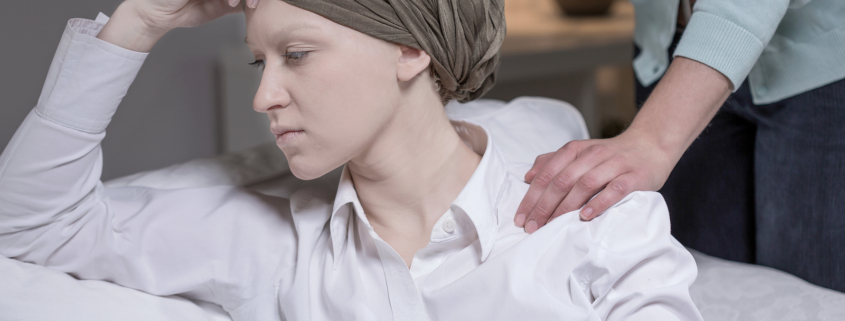What Strategies Can Help You Adjust To Cancer Treatment?
When someone receives the news that they have tested positive for cancer, it can feel like everything has changed long before the first adjustments are made to incorporate cancer treatment wherever and however they choose to have it.
Radiotherapy at Amethyst Austria is, of course, entirely distinct because of our service provision, which includes precision technology, short treatment times and significant support for international patients.
However, we believe in the fundamental importance of a holistic approach to cancer care. Everything from nutrition and physical therapy to mental health care are all vital elements that will aid in recovery during and after cancer treatment, and the makeup of our multidisciplinary teams accounts for this.
From the moment you get your diagnosis until the transition to long-term aftercare, there are several adjustments that you may need to make and decisions to consider when it comes to your care, work and other commitments.
With that in mind, here are some strategies that you can employ that can help you adjust to cancer treatment whilst it is your new normal.
Be Open And Encourage Openness In Others
There is a remarkably common temptation to act somewhat stoically and suppress some of the very normal emotions that surround a cancer diagnosis.
The healthiest approach is to be honest with your cancer team, your friends, family, loved ones and anyone you expect to be in regular contact with during the treatment, such as your employer or work colleagues.
Everyone has their own ways of managing their emotions, and part of the treatment process is finding the healthiest and most comfortable form of expression for you, but the most important step to this is to say how you feel and what would help people to help you.
Get As Much Useful Information As You Can
Your cancer team will be happy to answer any questions with as much detail as they can or as little detail as you want, because you are at the centre of the decision-making process when it comes to your treatment.
Some people want the complete picture, including details on the type of cancer, treatment options, the focus of treatment and what to expect during it, as well as how this may affect one’s quality of life.
In other cases, however, people would find that the facts and details beyond the basic information surrounding their condition would not be helpful, and they are more comfortable deferring to specialists with regard to the details of treatment.
In either case, your cancer team will help you by providing as much detail as they can about what this means for your treatment.
Try To Maintain Your Lifestyle But Prepare For Changes
There is no one-size-fits-all approach to cancer care, and everyone responds to treatment in different ways.
Some people, even when they travel internationally for cancer treatment, can maintain a relatively similar lifestyle to the one they had at home, particularly if they have the equipment and the ability to work remotely.
In some cases, the only change to their lives will be that every few days they have a half-hour appointment to receive radiotherapy and spend the rest of their time living their life normally.
Maintaining an exercise routine and a healthy diet can help with mood and energy levels a lot, as can maintaining your social life when it is possible to do so.
At the same time, there will be points where maintaining your usual routine can be trickier, and it is okay to say no, cancel plans and focus on your own wellbeing.
Let Your Friends And Family Help
Your friends and family will always be there for you and will be more than happy to help you out wherever they can.
Sometimes it can be difficult doing all of the household tasks that make up each day, including cooking, cleaning, shopping and travelling to appointments. Having friends, family and loved ones to help can make your life easier when you need it most.
Even if you are receiving treatment internationally, our clinic will offer services to help ensure that family and friends can be by your side so they can remain close whilst you are treated in Vienna.
Consider Joining A Support Group
The people close to you will help however they can, but unless they have had cancer themselves or know someone who has gone through the treatment process, they might not be able to completely understand how you are feeling or what you should expect.
There are a lot of support groups, both online and offline, that can help answer questions about treatment that your cancer team, friends and family might struggle with.
A support group can also help provide affirmation and ways to adjust to the routine of cancer care.


